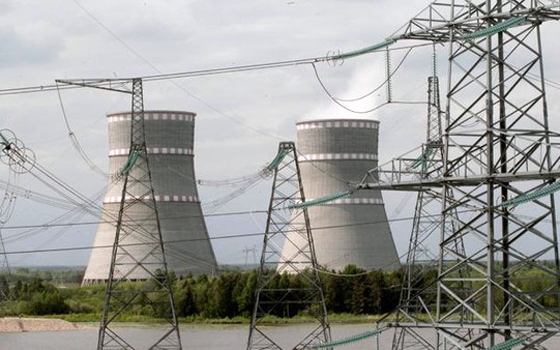Switching to nuclear power will lower the Kingdom's energy bill and create thousands of jobs, an official said Wednesday, as a deputy representing the area where the reactor is to be built voiced strong objection to the project's selected location.
Deputy Hind Fayez said in a statement that she would not allow the project to be constructed at Qusayr Amra as planned.
"I will not allow the construction of the nuclear reactor, not even over my dead body," Fayez said in a message sent to The Jordan Times. "The Bani Sakher tribe also rejects the construction of the nuclear reactor in Qusayr Amra," said the deputy, who belongs to this prominent Central Badia tribe.
The government on Monday announced that it selected Russian state-owned company Rosatom to build the Kingdom's first two nuclear reactors in the aforementioned site.
During a lecture at the Jordan Media Institute, Jordan Atomic Energy Commission (JAEC) Chairman Khaled Toukan asserted the need for the project in energy-starved Jordan, noting that it would reduce electricity production costs by over 70 per cent, and create some 12,000 jobs overall, according to a JMI statement.
Jordan which spends around JD4 billion on energy every year, half of it to generate electricity, is in dire need for such a project, Toukan said in the lecture.
He added that the nuclear project along with an "energy mix" can shield Jordan against shocks, particularly in view of the unprecedented rise in oil prices and the irregularities in Egyptian gas supplies to the Kingdom.
The nuclear project, which is expected to be completed by 2022, is linked to major strategic schemes such as sea water desalination that requires half of the Kingdom's electricity production.
But Greenpeace Mediterranean described the project as "ill-conceived" and "unacceptable".
In a statement e-mailed to The Jordan Times, Greenpeace Mediterranean Climate and Energy Campaigner Safa' Al Jayoussi said it is a matter of concern that the AES92 technology proposed by Russian firm has not been built in Russia or anywhere in the world.
But Toukan said earlier this week that the firm's AES92 VVER1000 reactor is a licensed technology "that has a proven safety record in several European countries and elsewhere".
Energy officials have listed the safety track record of the technology among the main advantages of the Russian bid, which beat out shortlisted French firm AREVA's experimental ATMEA1 reactor and Canadian AECL's CANDU technology.
But Jayoussi charged that "the lack of transparency coupled with the ignorance [of the JAEC] is unacceptable".
Greenpeace called on the government to abandon the nuclear plans before it is "too late".
Ongoing cuts in Egyptian gas supplies — which used to account for over 80 per cent of the Kingdom's electricity generation needs — are set to cost the country over $2 billion by the end of 2013, according to official estimates.
As per the country's national energy strategy, officials aim to boost domestic energy output from 3 per cent to over half the country's energy mix with a series of oil shale, natural gas, renewable energy and nuclear power projects.
Jordan Times
2 October






















































